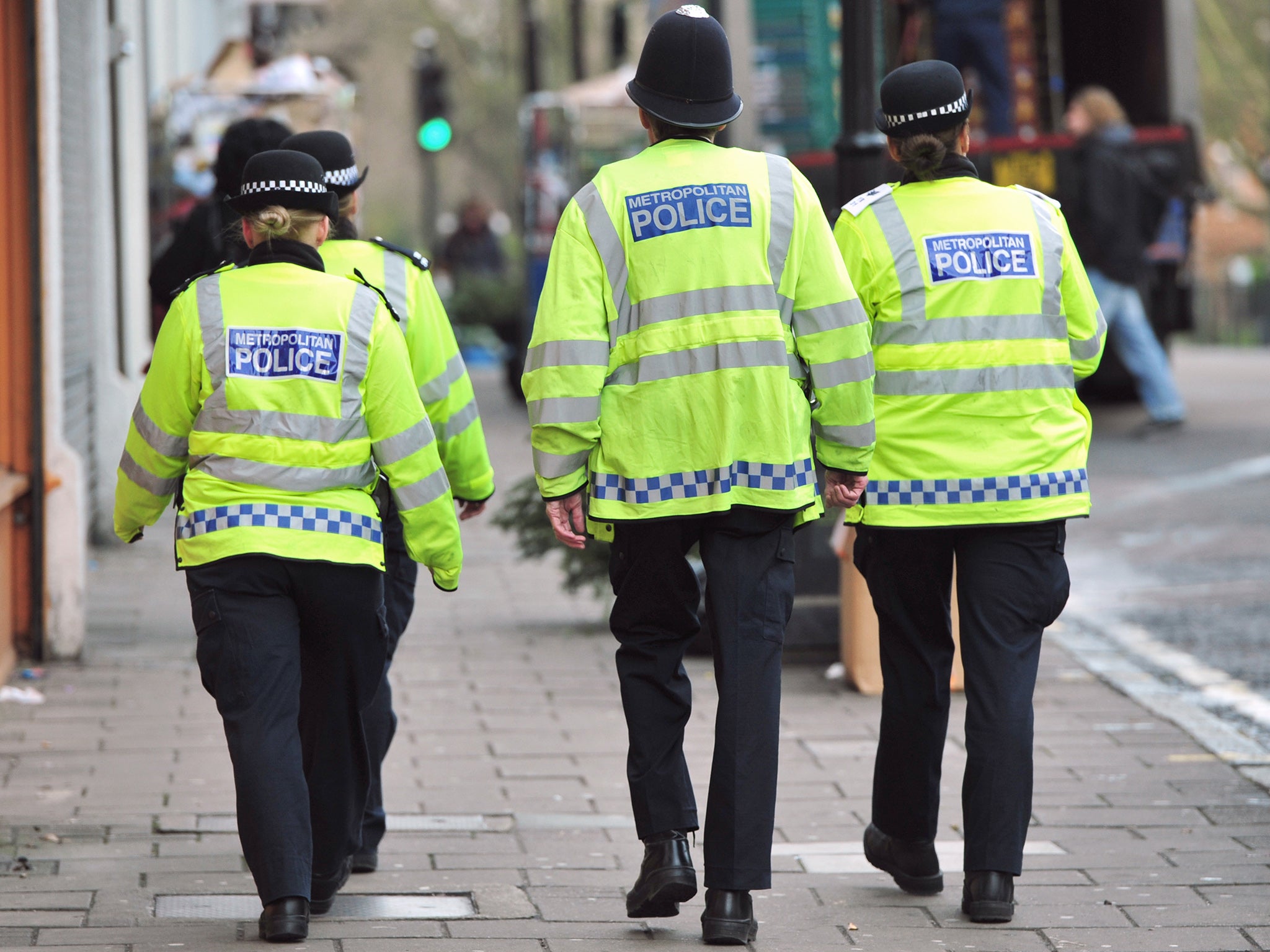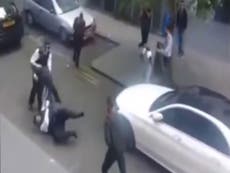Police 'writing off crimes' because they are so overstretched, damning report reveals
Officers failing to track down tens of thousands of known suspects for offences including terrorism, rape and murder

Police forces are putting the public at “unacceptable risk” by failing to investigate crimes, downgrading emergency calls and letting dangerous criminals roam free in what amounts to a “national crisis”, a damning report by the police watchdog has found.
A critical lack of detectives and the rationing of services in the face of increasingly tight budgets has plunged the force into a “potentially perilous” state, according to Her Majesty’s Inspectorate of Constabulary.
Officers are “writing off” crimes and failing to track down tens of thousands of known suspects for offences including terrorism, rape and murder, the report reveals.
A lack of qualified detectives means that serious criminal investigations are being handled by junior staff, it says. The findings raise “a large and deep red warning flag”, the report states, with police “simply not doing some of the basic things they should do”.
Evidence emerged in the inspection that officers are downgrading the severity of emergency calls to justify slower response times and recategorising domestic violence cases so they do not qualify as high risk.
It also found gangs of violent and dangerous criminals were not being formally classified as organised crime groups, in order to avoid placing further strain on overstretched services.
“We’ve seen how some forces are attempting to reduce pressure on their teams by artificially suppressing or downgrading calls upon their service, reducing their ability to take the most effective and prompt action,” said HMI Zoe Billingham, who led the inspection of the 43 forces in England and Wales.
Home Affairs Select Committee chair Yvette Cooper MP said the findings raised “very grave concerns”.
"We all rely on the police to keep us safe – yet this report shows 999 calls being downgraded, an 'unacceptable' level of the public at risk, and too many failures to respond to vulnerable victims,” she said.
“This raises very grave concerns, especially as the HMIC have described this as a form of 'rationing' in the face of budget cuts, policy changes and rising demand.”
Brian Paddick, Liberal Democrat shadow Home Secretary and former deputy assistant commissioner of the Metropolitan Police, described the findings as "totally unacceptable".
“Police officers have a ‘can do’ mentality. But the thin blue line is getting stretched to breaking point and vulnerable people are being placed at risk as a result," he said.
"It is totally unacceptable that police officers, who are doing more than anyone can reasonably expect of them, are being forced to downgrade ‘life at risk’ calls. How long will it be before someone dies because there is no police officer to respond?”
Labour’s Shadow Home Secretary Diane Abbott echoed their concern and said Government cuts had left services overstretched.
“We should be clear. The primary responsibility for this is not individual forces or officers. The fault lies with the Tory government who have cut 20,000 police officers and who are now cutting police budgets across the country,” she said.
Overall, just one force was judged to be "outstanding", while 28 were judged "good", 13 "require improvement" and one was rated "inadequate”.
The report also found evidence of complex investigations being led by those who lacked appropriate experience, with inspectors witnessing in one instance an uniformed officer investigating a rape.
It also highlighted the extent to which forces were not taking inquiries further because the victim did not support police action. In some areas, more than one in five cases were not investigated fully for this reason and the issue was particularly acute for domestic abuse.
Lucy Hastings, director of Victim Support, told The Independent forces were failing in identifying those who most need their help. “Some forces have not been providing adequate protection to those who are vulnerable and that is unacceptable,” she said.
Police Federation chair Steve White said the “pitfalls” of consistent cuts to policing had been highlighted over a period of years, and urged for the report to serve as a “wake-up call”.
“What we are seeing is a service that is only being driven by cost constraints and some areas of policing are on the critical list and heading towards intensive care,” he said.
“There now needs to be a proper debate around how much the public and Government want from their police service and how much they really want to spend on it. The public and our officers deserve as much.”
The National Police Chiefs' Council (NPCC) highlighted the report’s findings that a majority of police forces do a “good job in keeping members of the public safe”.
NPCC crime operations lead Chief Constable Michael Barton conceded budget cuts of 22 per cent since 2012 meant forces were “required to prioritise more”.
"It is our job to prevent crime and keep people safe so it is disappointing that HMIC also have concerns that some forces are falling short,” Mr Barton said.
“Difficult decisions are being made between resourcing neighbourhood teams, response units, specialist investigations and digital and cyber enabled crime. Police chiefs around the country will be looking at their local assessment to consider the impact of resourcing decisions, which may have been hidden from view.”
Brandon Lewis, the Minister for Policing and the Fire Service, said: “A number of forces clearly still have more work to do to ensure they are providing the level of service which communities expect and deserve.
"There can be no excuse for any force that fails to deliver on its obligations – those identified as inadequate or requiring improvement must take HMIC’s findings very seriously and I expect to see rapid improvements.”
PEEL report key findings:
- Initial risk assessments made by call handlers are being downgraded because of a lack of available officers to respond immediately
- A lack of focus directed to apprehending wanted individuals, with the details of 67,000 suspects not placed on the police national computer (PNC)
- As of August there were 45,960 wanted suspects on the database, including those being sought for offences including terrorism, murder and rape
- In too many cases forces are taking "insufficient action" to actively track down wanted suspects once their details have been circulated on the PNC
- Limited capacity within many forces to manage the risk posed by the most dangerous offenders
- Neighbourhood policing – described as "the bedrock" of the service – continues to be eroded
- Gangs of violent and dangerous criminals were not formally classified
Subscribe to Independent Premium to bookmark this article
Want to bookmark your favourite articles and stories to read or reference later? Start your Independent Premium subscription today.








